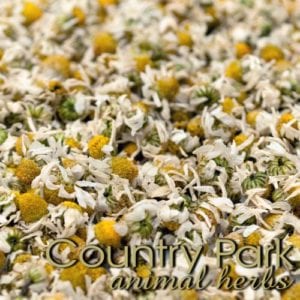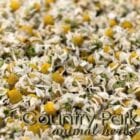Description
The small daisy-like flowers of chamomile – called “Ground Apple” most noted for their calming, relaxing effects on both the digestion and the nerves. Chamomile, though, has a wide range of actions in the body it is well documented as having anti-inflammatory activity and is also beneficial in reducing allergic responses as it contains a number of anti-histamine chemicals. In addition, it is recognised as being ulcer-protective through its healing effect on the mucosa of the gastro-intestinal tract.
It supports the body’s skeletal structure through its calcium phosphate content, and in the case of skin allergies it can be applied externally (as a ‘tea’ rinse) to help reduce itching and irritation. Chamomile is mildly anti-microbial, assisting the body to destroy or resist pathogenic (disease-causing) micro-organisms.Interestingly, bunches of chamomile were once consistently hung in stables to deter flies.
ACTIONS include: Anti-inflammatory, anti-spasmodic, anti-microbial, bitter (digestive), carminative (eases flatulence and colic), sedative (reduces nervous tension), anti-allergenic, vasodilatory (widens blood vessels) and analgesic (pain relieving).
NOTE: Occasional hypersensitive reactions have been observed in the human population (amonst those who are allergic to members of the ragweed family), however this type of sensitivity is extremely rare









